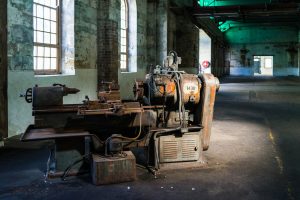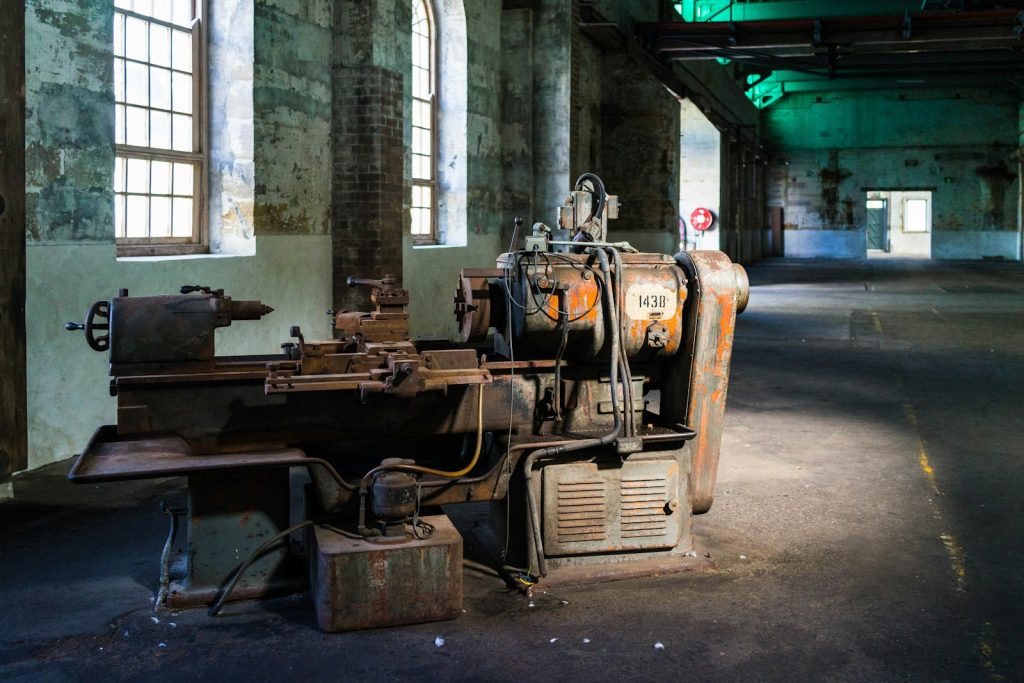Types of Lathe Machines: A Comprehensive Guide
Lathe machines have been essential tools in the manufacturing and metalworking industries for centuries. Whether you’re a hobbyist or a professional machinist, understanding the different types of lathe machines is crucial to choosing the right one for your project. In this post, we will explore the various types of lathe machines, their uses, and why they are important in the world of machining.

1. Center Lathe (Engine Lathe)
The center lathe, also known as an engine lathe, is one of the most common types of lathes. It’s widely used in metalworking and woodworking for producing cylindrical parts.
- Key Features: Horizontal spindle, manual feed for turning.
- Applications: Turning, taper turning, threading, facing, and parting.
- Ideal For: General-purpose machining in workshops and small-scale production.
2. Speed Lathe
The speed lathe is known for its high spindle speed and simplicity. It lacks a carriage and is typically operated manually.
- Key Features: Simple construction, higher speeds, lacks cross-slide.
- Applications: Woodturning, metal spinning, polishing.
- Ideal For: Light-duty operations and smaller parts.
3. Toolroom Lathe
Toolroom lathes are designed for high-precision work and are often used in tool and die shops. They offer a higher degree of accuracy compared to standard lathes.
- Key Features: Precision, adjustable speeds, accuracy.
- Applications: Making precise components for tools, dies, and molds.
- Ideal For: Manufacturing highly accurate and intricate parts.
4. CNC Lathe
The CNC (Computer Numerical Control) lathe is an advanced, automated version of the lathe. It uses programmed instructions (G-code) to control the movement of the tool and workpiece.
- Key Features: Automated, highly accurate, and capable of complex designs.
- Applications: Mass production, complex geometries, high precision.
- Ideal For: Industrial-scale production and modern manufacturing.
5. Capstan and Turret Lathe
Capstan and turret lathes are semi-automated machines designed for mass production. They feature a rotating turret that holds multiple tools, allowing for faster machining operations.
- Key Features: Rotating turret for tool holding, semi-automated.
- Applications: Mass production of identical parts.
- Ideal For: Repetitive production of small to medium-sized parts.
6. Special Purpose Lathes
Special-purpose lathes are custom-designed to perform specific tasks that standard lathes cannot handle.
- Key Features: Custom configurations, specialized tooling.
- Applications: Gear cutting, brake drum turning, and more.
- Ideal For: Industries with unique machining needs, such as automotive and aerospace.
7. Automatic Lathe
An automatic lathe is capable of performing machining tasks without constant operator input. It’s commonly used for high-volume production.
- Key Features: Fully automated, continuous production.
- Applications: Mass production of small, precision parts.
- Ideal For: High-speed production lines with minimal human intervention.
8. Bench Lathe
A bench lathe is a smaller, more compact version of the lathe, ideal for hobbyists and smaller workshops.
- Key Features: Portable, compact, suitable for small parts.
- Applications: Model-making, precision tasks on small workpieces.
- Ideal For: Home workshops, educational purposes, and light machining tasks.
Conclusion
Each type of lathe machine has its unique strengths and is suited for different tasks. Whether you need high precision, speed, or the ability to mass-produce identical parts, there’s a lathe for every job. Choosing the right type of lathe machine will enhance your productivity, efficiency, and the quality of your finished workpieces.
Looking for the perfect lathe for your workshop? Explore our range of lathe machines today and find the best one for your machining needs!
